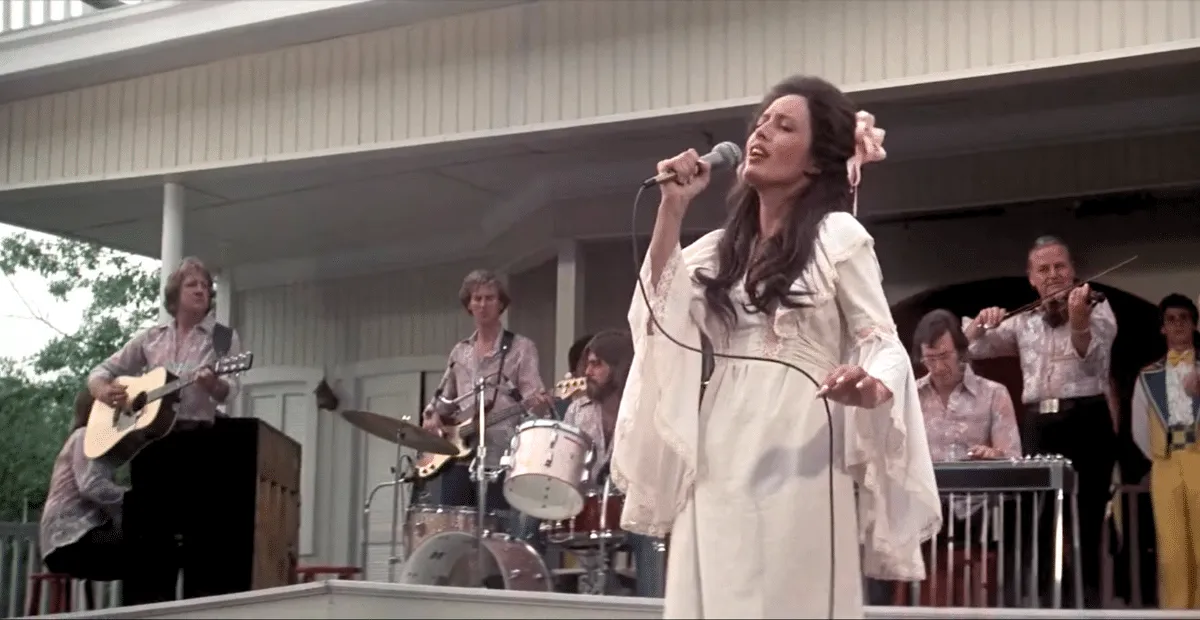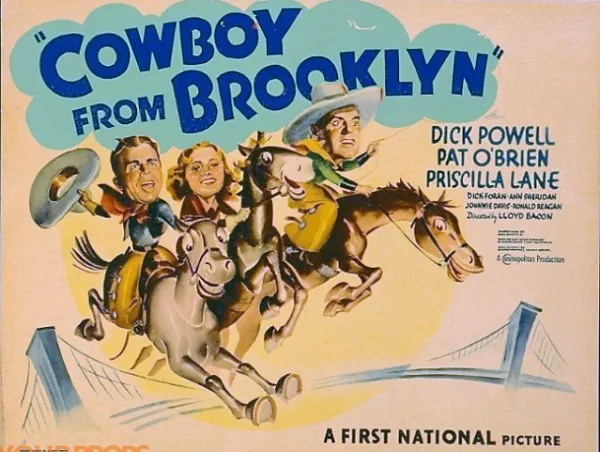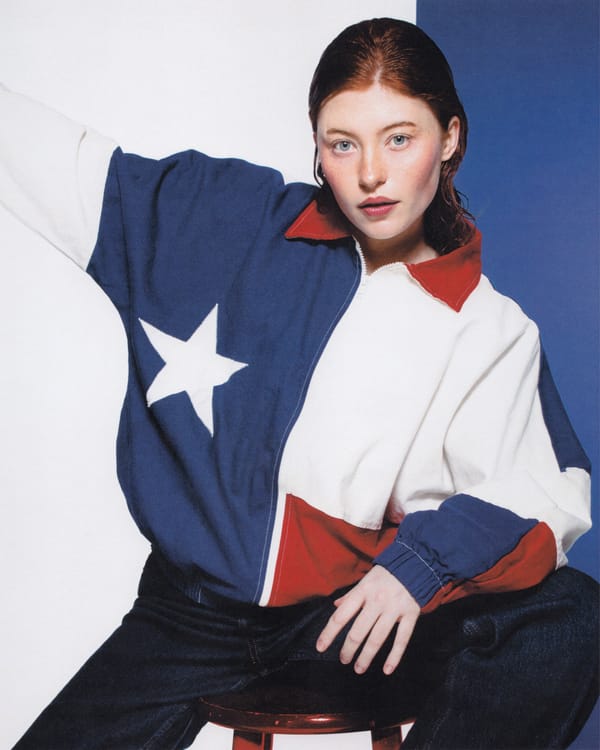Issue #116: Robert Altman's 'Nashville' and Nashville, or 50 Years of Trying to Make Country Music a Political Metaphor
A look at the country side of 'Nashville'

"Nobody ever said that this was supposed to be a movie about country music," Nashville screenwriter Joan Tewkesbury told Film Quarterly in a massive package on the movie published shortly after its 1975 release. You could forgive 50 years of viewers for assuming otherwise, though, given that most of the main characters that appear in the nearly three-hour Altman epic are either country stars, aspire to be, or need something from those who have made it on Music Row — and that the film was essentially constructed as a musical, complete with original songs (written in large part by the actors who sang them, most of whom were neither professional songwriters nor singers) and a separately sold soundtrack of said songs.
The movie, long considered one of the very best in American cinematic history, paints a contemporary portrait of Music City that was instantly heralded upon its release as a dark, accurate reflection of the country as a whole: "a spiritual inventory of America, splendidly frank and honest," as none other than Kurt Vonnegut wrote in Vogue at the time. There's no question it has a haunting quality, especially watched through the lens of our current political climate — one where an outsider "populist" candidate with a basically incoherent platform (like the politician whose campaign doggedly follows the film's characters around) has indeed ascended largely through a kind of reactionary, facile patriotism targeted at those in "real" America, the heartland (and those who imagine themselves there). Nashville, as it were.
"It may, as its enthusiasts have said, be the last word on Middle America's dark urges to fascism," wrote critic Bruce Cook in the Socialist magazine New Leader. "But is it really fair to country music?" His was one of the only pieces I've been able to find that actually looked at the movie from a musical perspective (critic Greil Marcus responded to the movie with a hard pan, but not for musical reasons) — pointing out that the film's music and depiction of its industry is at best, mediocre, and at worst, somewhat insulting because of its amateurism and lack of attention to detail. "It's simply not true that anybody can write songs," Cook correctly points out, by way of reaction to the sort of Method approach Altman and his actors took to making the movie's songs. Pedal steel legend Lloyd Green (who actually also contributed to the soundtrack) put it this way: "The film bears the name of our city, but the music is unlistenable…If Altman thinks this is our kind of music, he's got another think coming. I don't think he did his homework on this one."
"I suspect that many of those who love country music will be bored or even annoyed by these songs," music critic John Rockwell wrote in the New York Times, "and will find it patronizing that Mr. Altman hasn't cared as much about the music as he obviously does about acting."
To be fair, Altman repeatedly professed to the fact that the film was "a metaphor for his personal view of society" and "not the story of Nashville," as he told the New York Times. Opal, the film's misguided BBC reporter character played by Geraldine Chaplin, was reportedly based on him and Tewkesbury — two outsiders who parachuted in to learn enough about the city to make a movie (in Opal's case, a documentary) about Nashville. "My instructions to Geraldine were to just watch me when I do my con job and then do her own takeoff from there," Altman said. "She was me, us, the outsiders who came into Nashville without knowing what the hell is going on. I don't know anything more about Nashville than she does." There is a degree of self-awareness in that assessment, that the culture he's using as a device is more complex than he assumes (Opal is the butt of many jokes because of her pretentions), but ultimately it didn't seem to dramatically change the way they approached Nashville as concept in the film. "It's a cartoon I think in many ways, but I don't think it's cruel; just accurate," Altman told Newsday.
Is it, though, when it comes to the subject of country specifically? Some sites and stories are quite real: the Grand Ole Opry, of course, and the Exit/In; the 9 to 5 business of Nashville studios (including a lackluster piano player named Frog — "I asked for Pig!" the singer insists, a reference to Hargus "Pig" Robbins); a scene in which Opal the reporter assumes that because he is Black, Charley Pride stand-in Tommy Brown is one of Brown's employees rather than the star himself, one that echoes plenty of Pride's own anecdotes (though I'm not sure he was sharing them in the mid-'70s).
Others feel stretched beyond recognition. The biggest star in the film is Barbara Jean, who is meant to be like Loretta Lynn except…fragile and in and out of a mental hospital, when in 1975 the actual Lynn released "The Pill" — the most iconic in a series of iconic boundary-pushing singles about independent women who take matters into their own hands. Tom, a lothario folk-rock singer played by Keith Carradine, is allegedly meant to be "a Jerry Jeff Walker kind of character" despite neither singing nor acting anything like Jerry Jeff. Some of the songs ring of parody, which is fine; some are just middling. In all cases, it's understandable that hearing them might sting to those who make songcraft their life's work.
Of course creative license is to be expected, and even encouraged. Nashville, though, is one of the most major entries in a long line of fictional and nonfictional works that use country music as a way to indicate something else — typically, assumptions about politics or rural America or some combination of the two. There is some nuance to how Nashville depicts country music's politics — that is, not inherently and intractably bright red — but the decision to use the music as a metaphor for, basically, the downfall of American political society has a stultifying effect. The assumed viewer is, like Altman, a progressive, intellectual denizen of the coasts and thus not a country music fan; ergo, nothing chafes about the music being mostly made by, as Altman put it, cartoons.
The compounding of these particular assumptions has happened over, and over, and over in the years since Nashville was released. That country music is simple and thus not really worth considering deeply or critically because a surface reading will give you more than enough to work with; that it is tied to some kind of Real American Flyover State Heartland identity, which you can then easily understand with that surface reading; that the politics of its musicians, industry and fans are obvious and usually offensive. Almost completely absent from the film is the outlaw country movement, which was near its zenith in 1975; Cook, in his Nashville rebuttal, directs his readers to Waylon Jennings and Willie Nelson's just-released Red-Headed Stranger. "For those who may have been taken in by the counterfeit sounds of Nashville [indeed, one of Carradine's contributions won the Oscar for Best Original Song], I feel I ought to call attention to the real thing," he wrote.
The outlaw movement hinged on the push and pull that's defined Nashville — and any site where artists come together — since it became an epicenter of music, the tension between tradition and innovation that's perpetually being relitigated. Yes, Nashville wears its conformity on its sleeve more than many other artistic hubs, but there's always been forces pushing against that conformity, against tradition, against musical and capitalistic and political conservatism. That tension is muted in Nashville the film, and generally ignored by those who would use country music to prove some kind of point — a wrongheaded approach not because of the consequences for country music, which will continue to do just fine, but because it weakens those arguments. How strong can your metaphor be if you don't even really understand it yourself, and don't find it worth understanding? If you want to use country as a cudgel, it helps to get to know it first.





